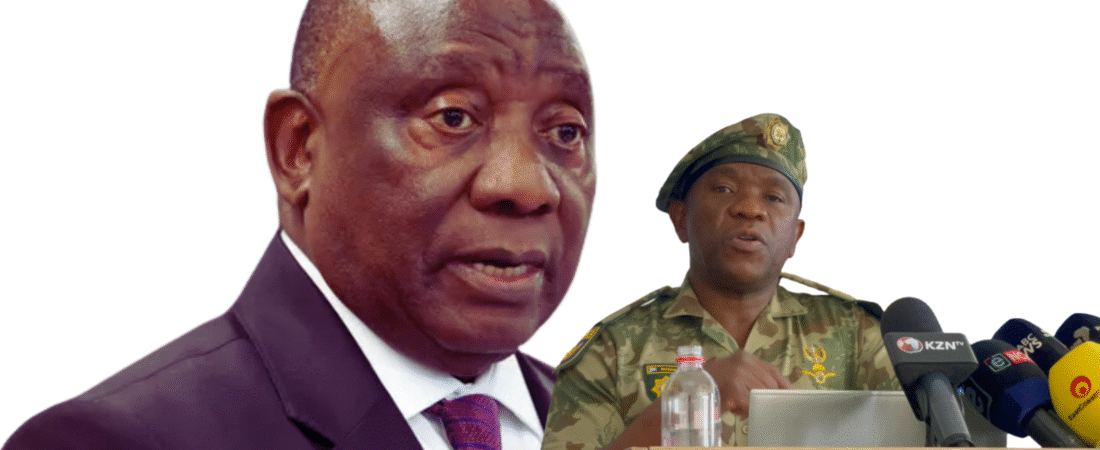South Africa stands at a precipice, staring into an abyss of its own making. The bombshell allegations dropped by KwaZulu-Natal’s top cop, Lieutenant General Nhlanhla Mkhwanazi, were not just a political scandal; they were a raw, unfiltered exposé of a state seemingly at war with itself. His detailed account of a sophisticated criminal syndicate, allegedly operating with the protection of the very minister tasked with policing it, has forced a national reckoning. President Cyril Ramaphosa’s swift response—a primetime address announcing a full-scale Judicial Commission of Inquiry—was the only move possible, but it marks the beginning, not the end, of a perilous journey.
To listen to Mkhwanazi was to hear the desperate cry of a system in cardiac arrest. This was no vague accusation of corruption. It was a methodical, evidence-laden indictment. He detailed how a highly successful task team, credited with solving hundreds of political killings, was allegedly neutered by Police Minister Senzo Mchunu the moment its investigations got too close to a powerful drug cartel. This syndicate, Mkhwanazi claims, has its tentacles wrapped around the entire criminal justice system, from police and prosecutors to the judiciary itself. The alleged evidence—cell phone records linking the Minister’s associate to a murder accused and discussions of the task team’s disbandment before it was official—paints a picture so damning it borders on the surreal.
Mkhwanazi’s decision to go public was an act of professional defiance, a high-stakes gamble that could either cost him his career or save the soul of the service he represents. It was the desperate act of a man who believes the internal channels for justice have been irrevocably compromised. In doing so, he has thrust the nation into a crisis, but it is a crisis of necessary truth.
In this context, President Ramaphosa’s actions must be viewed through a dual lens. On one hand, his response was textbook crisis management. Announcing a Judicial Commission of Inquiry led by a figure as respected as acting Deputy Chief Justice Mbusisile Madlanga was a masterstroke. It signals gravity and intent. Placing Minister Mchunu on leave was non-negotiable to lend the process a veneer of credibility. Ramaphosa said the right words, hit the right notes of reassurance, and projected an image of a leader in control.
On the other hand, this crisis is the culmination of a rot that has been allowed to fester for years, a rot that President Ramaphosa himself vowed to expunge. The concept of “state capture” is not new; it has been the defining narrative of his presidency. That a police general feels the only recourse is to hold a press conference to expose alleged criminality at the highest level suggests that the President’s cleanup operation has, at best, been incomplete. The allegations, if true, represent a far more insidious form of capture—not just of state-owned enterprises for financial gain, but of the very instruments of law and order for criminal enterprise.
This, then, is the ultimate test. The commission is not merely an investigation; it is a battle for the integrity of the South African state. Its success will not be measured in eloquent reports, but in arrests, prosecutions, and fundamental, systemic reform. We have seen commissions come and go, their recommendations gathering dust on shelves while the implicated continue to wield power. For this to be different, the President must be prepared to follow the evidence wherever it leads, even if it incriminates those within his own political circle.
Lieutenant General Mkhwanazi has thrown a grenade into the heart of the establishment. It was a messy, chaotic, and dangerous act, but it may have been the only way to force a nation to look in the mirror. Now, as the dust settles, we are left with a fragile hope: that the ensuing explosion will not tear the country apart, but will instead provide the cleansing fire needed to burn away the corruption that threatens to consume it entirely. The future of South Africa’s democracy may very well depend on it.
